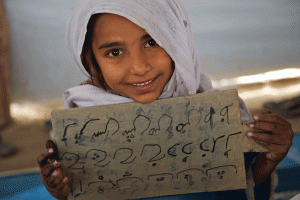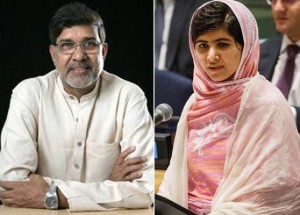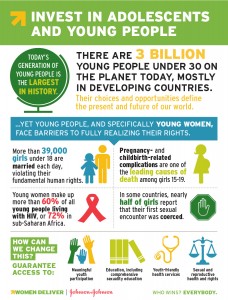The Struggle for Rights & Dignity
Oct 13th, 2014 | By admin | Category: Youth RightsBy Suzanne York, www.howmany.org
Last week, on International Day of the Girl– a day recognized by the UN “to help galvanize worldwide enthusiasm for goals to better girls’ lives” – the Nobel Peace Prize was awarded to two people working on behalf of children’s rights.Malala Yousafzai, the teenager shot by the Taliban two years ago and who advocates tirelessly for a girl’s right to education, became the youngest Prize recipient ever.
Kailash Satyarthi, is a long-time Indian children’s rights campaigner and founder of the Save the Childhood Movement, which advocates for an end to human trafficking. Satyarthi’s organization has worked to make India’s rug industry child labor-free, liberating nearly 80,000 children since 1980.
Common Struggle for Rights
Given that this is a peace prize, there is much symbolism and hope in giving it to Muslim Pakistani and a Hindu Indian. The Prize committee said it was important that a Muslim and a Hindu, a Pakistani and an Indian, had joined in what it called a common struggle for education and against extremism.
President Obama, who won the Nobel Peace Prize in 2009, showered the recipients with praise for their work and struggles. He congratulated Kailash and Malala, saying this “is a victory for all who strive to uphold the dignity of every human being”.
Obama underscored what is the global goal, noting “Even as we celebrate their achievements, we must recommit ourselves to the world that they seek — one in which our daughters have the right and opportunity to get an education; and in which all children are treated equally.”
There is a link between the campaigns, for children who lack education are all too often forced in to trafficking and other positions where they have no rights. According to UNICEF, India has the largest number of child laborers under the age of 14 in the world, with more than 28 million children engaged in child labor.
“useless type of a girl”While it is wonderful that a young activist for girl’s rights won a prestigious prize, the reaction in her home country reflects just how much work there is to do to educate everyone on why education for all is so critical.
The BBC reported that some Pakistanis feel that Malala’s plight was all a Western conspiracy, and that she is a CIA stooge, with one journalist stating, “She is a normal, useless type of a girl. Nothing in her is special at all. She’s selling what the West will buy.” Of course if she hadn’t been shot in the head by the Taliban the West would probably never have heard of her.
So while the focus may be on educating and empowering girls – which should be a priority – educating men and boys must also be on the agenda. Overcoming poverty, ignorance, unemployment are all connected to lack of education for both boys and girls.
And in India, as the country sets it sights on Mars, and also on providing toilets, it should include the efforts of Kailash Satyarthi to end child exploitation if it is to truly move the Indian people forward.
Global Efforts for Education
As for the rest of the world, all support possible should be directed toward investing in education for all children, and help create sustainable jobs and lift people out of poverty. And for the U.S., understanding the impact of its drone policy in turning people toward extremism and ignorance. Until that happens, one step to take is passing the Education for All Act in Congress that would expand children’s access to school and close the global gender gap in education.
Suzanne York is a senior writer with the Institute for Population Studies.



